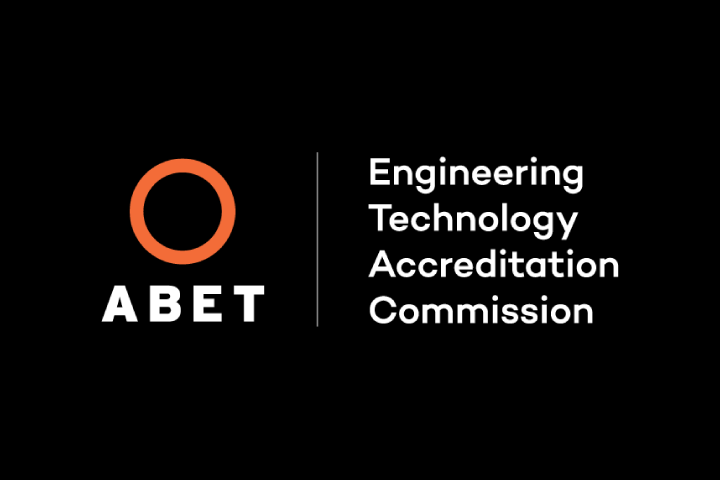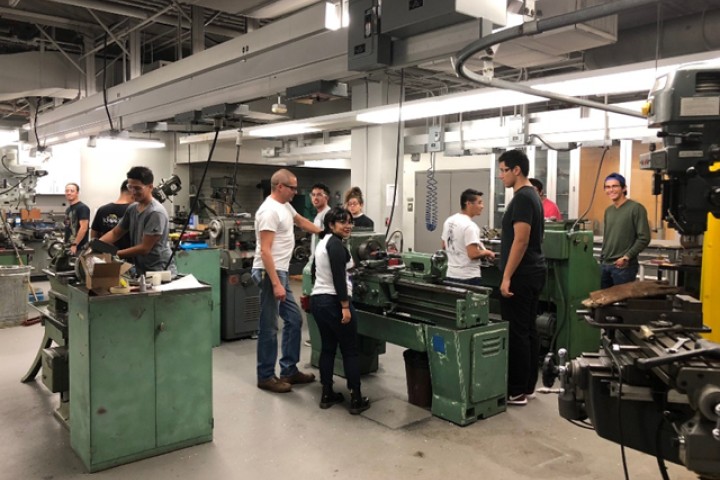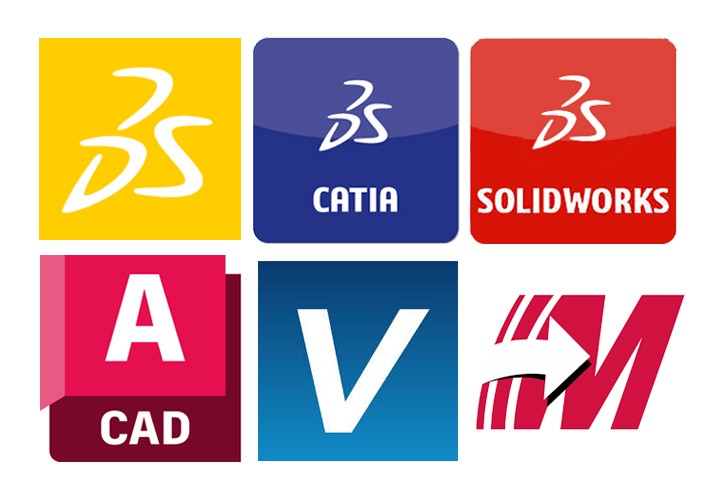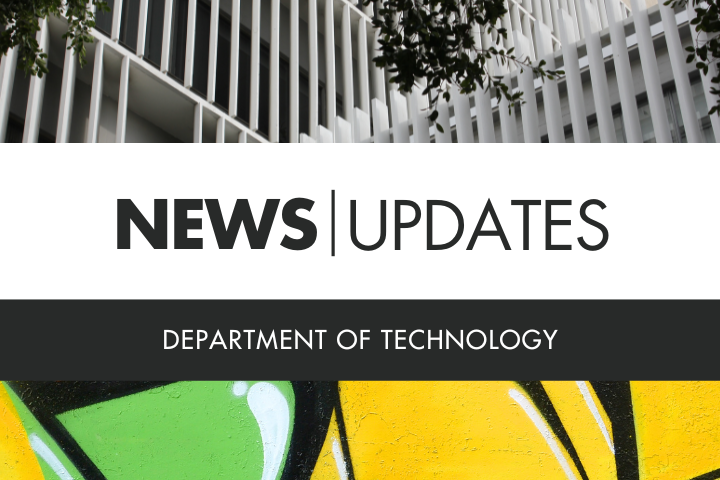At Cal State LA, our B.S. in Engineering Technology program stands out for its hands-on approach to learning practical engineering skills and knowledge. We believe in the power of practice-based education, so our courses emphasize hands-on work over theory, ensuring that our students develop the skills necessary for success in today's fast-paced industries. Our program focuses primarily on the applied aspects of science and engineering, preparing graduates for careers in Manufacturing Systems and Processes or Sustainable Power and Transportation Technologies.
ETEC Curriculum Advantages
INTEGRATED CURRICULUM
Our curriculum integrates science, mathematics, and modern engineering tools, empowering students to solve real-world engineering problems with confidence.
PRACTICAL MATH
From a mathematical standpoint, engineering technology programs prioritize practical applications of algebra, trigonometry, and calculus. The level of mathematics is generally less intensive compared to engineering programs.
HANDS-ON EXPERIENCE
Through hands-on activities and laboratory experiments, students gain practical experience in design, testing, and analysis. This approach helps in the development of essential workplace skills, preparing graduates for positions in manufacturing, sustainable power, product design, and technical services.

ABET Accreditation
The program leading to the Bachelor of Science degree in Engineering Technology is accredited by the Engineering Technology Accreditation Commission of ABET (click to learn more about ETAC of ABET), https://www.abet.org, under the General Criteria and the Program Criteria for Engineering Technology and Similarly Named Programs.
Hands-On Facilities

Our Engineering Technology program at Cal State LA offers students access to state-of-the-art hands-on facilities to enhance their learning experience. One of the key facilities available to our students is the Machine Shop. The Machine Shop facility provides students with a practical environment to apply theoretical knowledge gained in the classroom. Here, students have the opportunity to work with various machining tools and equipment under the guidance of experienced faculty members. For more information refer (https://www.calstatela.edu/ecst/makerspace)
The Cal State LA Hydrogen Research and Fueling Facility (H2 Station) was formally opened on May 7, 2014. As the largest university-located hydrogen fueling facility in the nation, commissioning continues, and the facility is available to Fuel Cell Electric Vehicles (FCEVs). The station is capable of producing hydrogen on-site from renewable energy sources using the process known as electrolysis. FCEVs' fueling at the station emits only water vapor emissions! For more information refer (https://www.calstatela.edu/ecst/h2station)
The Material Testing Lab is equipped with state-of-the-art equipment and instrumentation for conducting a wide range of tests on different types of materials, including metals, polymers, ceramics, and composites. Students learn to collect, analyze, and interpret data obtained from material tests, gaining valuable insights into material behavior. The hands-on experience gained in the Material Testing Lab prepares students for careers in industries such as aerospace, automotive, construction, and manufacturing, where material testing is essential for product development and quality assurance.
Industry-Standard Software
The Engineering Technology program at Cal State LA not only provides hands-on experience but also equips students with proficiency in a wide range of industry-standard software applications. These software tools are crucial for modern engineering practices, as they are essential for designing and analyzing various engineering systems and processes.

| SOFTWARE NAME | SOFTWARE USE |
|---|---|
|
DELMIA |
Virtual Simulation Software
|
| SOFTWARE NAME | SOFTWARE USE |
|---|---|
|
CATIA |
3D Parametric Design |
| SOFTWARE NAME | SOFTWARE USE |
|---|---|
|
SolidWorks |
2D Sketch & 3D Parametric Design |
| SOFTWARE NAME | SOFTWARE USE |
|---|---|
|
AutoCAD |
Draw and edit digital 2D and 3D designs more quickly and easily than you could by hand. |
| SOFTWARE NAME | SOFTWARE USE |
|---|---|
|
Vericut |
Machining Simulation |
| SOFTWARE NAME | SOFTWARE USE |
|---|---|
|
MasterCam |
Machining Simulation |
Objectives & Outcomes
Engineering Technology | Program Educational Objectives
Our Program Educational Objectives (PEOs) are the cornerstones of our Engineering Technology program, which emphasize knowledge and skills in design, manufacturing, sustainable energy, research, and management, as well as leadership, entrepreneurship, and a dedication to continuous learning. The following are the Engineering Technology Program Educational Objectives (PEOs).
Graduates of the Cal State LA B.S. in Engineering Technology program who are three to four years out will:
- Be employed in Industry utilizing design, manufacturing, sustainable energy, research, and management skills.
- Have secured or pursued Leadership positions and/or entrepreneurial pathways.
- Demonstrate a commitment to lifelong learning to further their professional practice.
Engineering Technology | Program Student Outcomes
We have clear expectations for your success in the Engineering Technology program. These student outcomes describe the knowledge and skills you will gain throughout your studies. By the time you graduate, you will be well-prepared to apply these capabilities to real-world engineering challenges and to effectively collaborate with technical teams.
- An ability to apply knowledge, techniques, skills, and modern tools of mathematics, science, engineering, and technology to solve broadly defined engineering problems.
- An ability to design systems, components, or processes meeting specified needs for broadly-defined engineering problems appropriate to the discipline.
- An ability to apply written, oral, and graphical communication in broadly defined technical and non-technical environments and an ability to identify and use appropriate technical literature.
- An ability to conduct standard tests, measurements, and experiments and to analyze and interpret the results to improve processes.
- An ability to function effectively as a member as well as a leader on technical teams.
Engineering Technology vs. Engineering
Understanding the distinctions between Engineering and Engineering Technology is essential for aspiring professionals navigating their academic and career paths. Below are the key differences between these two closely related fields to provide clarity and insight.
| ASPECT | Engineering Technology (ETEC) | Engineering (ENGR) |
|---|---|---|
| Curricular Focus |
|
|
| Curriculum Features |
|
Requires higher-level mathematics, including differential equations. |
| Career Paths |
|
|
Please watch the video to gain a better understanding of engineering technology.ABOUT ENGINEERING TECHNOLOGY
ETEC Industrial Advisory Board
The Industry Advisory Board (IAB) plays a crucial role in guiding the direction and development of Cal State LA's Engineering Technology program. The IAB provides valuable insights, feedback, and recommendations to ensure our program remains current, relevant, and responsive to industry needs.
Duties and Responsibilities:
- They provide insights into industry trends, emerging technologies, and evolving market demands to help shape the program's curriculum and objectives.
- The IAB reviews the program's Program Educational Objectives (PEOs), Student Outcomes (SOs), and curriculum to ensure that they align with industry standards, best practices, and emerging technologies.
- They contribute to identifying areas for improvement, innovation, and collaboration. They share industry perspectives, employer expectations, and workforce needs.
- Student Engagement: The IAB also engages with students through guest lectures and industrial visits.
MEET OUR BOARD MEMBERS
| NAME | SPECIALIZATION |
|---|---|
| Fahd Alam Lead Design Engineer, Combustion Aero GE Gas Power Greenville, SC |
|
| Illary Archilla President and CEO, Terravanta |
|
| Ann Carpenter CEO, Braid Theory |
|
| Sid A. Carter VP, Finance Charity + Power |
|
| Angelo Diniz Quality Engineer Virgin Orbit, Mojave, CA |
|
| Rebecca Wetzstein Principal In Charge, Allied Bridge Energy Solutions, Inglewood, CA |
|
| NAME | SPECIALIZATION |
|---|---|
| James Allington Allington Consulting |
|
| Gopal Mohanty Vice President of Quality Assurance, Regulatory Affairs, and Compliance at Clarix Imaging Corp. |
|
| John Hill Mechanical Engineering Manager, Collins Aerospace |
|
| John Linares Project Engineer MEP Systems & Technology, AECOM |
|
| Luis Munoz Operations Manager, Honeywell Aerospace, Torrance, CA |
|
| Maria Prito Telemetry Engineer, Honeywell |
|
| Jovanny Santana Associate Manufacturing Engineer, Northrop Grumman Corporation |
|
| Neha Vedavathi Ramachandran Romeo Power Technology |
|

We are pleased to announce that we are seeking ABET accreditation this year, and if accredited will affirm that our program meets the standards of quality and excellence. For more information, visit ABET ACCREDITATION
The CSU Chancellor's office has approved our curriculum proposal for the B.S. Engineering Technology program. The new Engineering Technology program was approved to begin in the Fall of 2022. The new program will require MATH 2110 (Calculus 1) and PHYS 1560/1570 as prerequisite courses for some junior and senior-level ETEC courses. Once the Engineering Technology program is established and the first group of students graduates, we will seek ABET Accreditation per the ABET accreditation guidelines. Current Industrial Technology students will be able to complete their Industrial Technology degree, or some students may choose to switch to the new program if the Campus and Accreditation guidelines qualify them. The Technology Department has worked on major change guidelines from Industrial Technology to Engineering Technology. We have planned informational meetings for our current Industrial Technology majors as follows. We will arrange similar meetings for PRE- Industrial Technology majors later.
Information meeting scheduled for Industrial Technology majors: Date to be determined
We will plan additional meetings as needed. (please note that these are not for Pre-Industrial Technology majors)
The following are some resource materials that will provide more details.
- Engineering Technology Curriculum sheet
- Engineering Technology Major Change Guidelines
- Allowed substitutions from ITEC curriculum to ETEC curriculum
- Four-Year Road Map for Engineering Technology curriculum
- Four-Year Flow-Chart Road Map
- Engineering Technology Flyer
If you have any questions, please contact Technology Department Chair Dr. Rupa Purasinghe.
Notice to Pre-Industrial Technology current Students – Meeting notice
The CSU Chancellor's office has approved our curriculum proposal for the BS Engineering Technology program. The new Engineering Technology program was approved to begin in Fall 2022. The new program will require MATH 2110 (Calculus 1) and PHYS 1560/1570 as prerequisite courses for some junior and senior-level new ETEC courses. Once the Engineering Technology program is established and after the first cohort graduates, we will seek ABET Accreditation per the ABET accreditation guidelines. Current Industrial Technology students will be able to complete their Industrial Technology degree, or some students may choose to switch to the new program if the Campus and Accreditation guidelines qualify them. The Technology Department has worked on major change guidelines from Industrial Technology to Engineering Technology. We have planned information meetings for our current Pre-Industrial Technology majors as follows.
Information meeting scheduled for Pre-Industrial Technology majors: Date to be determined: We plan to add additional meetings depending on the need.
(Note: This is only for Pre- Industrial Technology majors and not for Industrial Technology majors. Industrial Technology majors have a separate meeting.)
Here are some materials we will use during the information meeting.
- Engineering Technology Curriculum sheet
- Engineering Technology Major Change Guidelines
- Allowed substitutions from ITEC curriculum to ETEC curriculum
- Four-Year Road Map for Engineering Technology curriculum
- Four-Year FlowChart Road Map
- Engineering Technology Flyer
If you have any questions, please contact Mr. Lopez ([email protected]) or Technology Department Chair Rupa Purasinghe ([email protected])
Reach Out
Rupa Purasinghe, Ph.D., P.E.
Engineering Technology Program, Department of Technology
Office: ET A337 | Phone: (323) 343-4550 | [email protected]